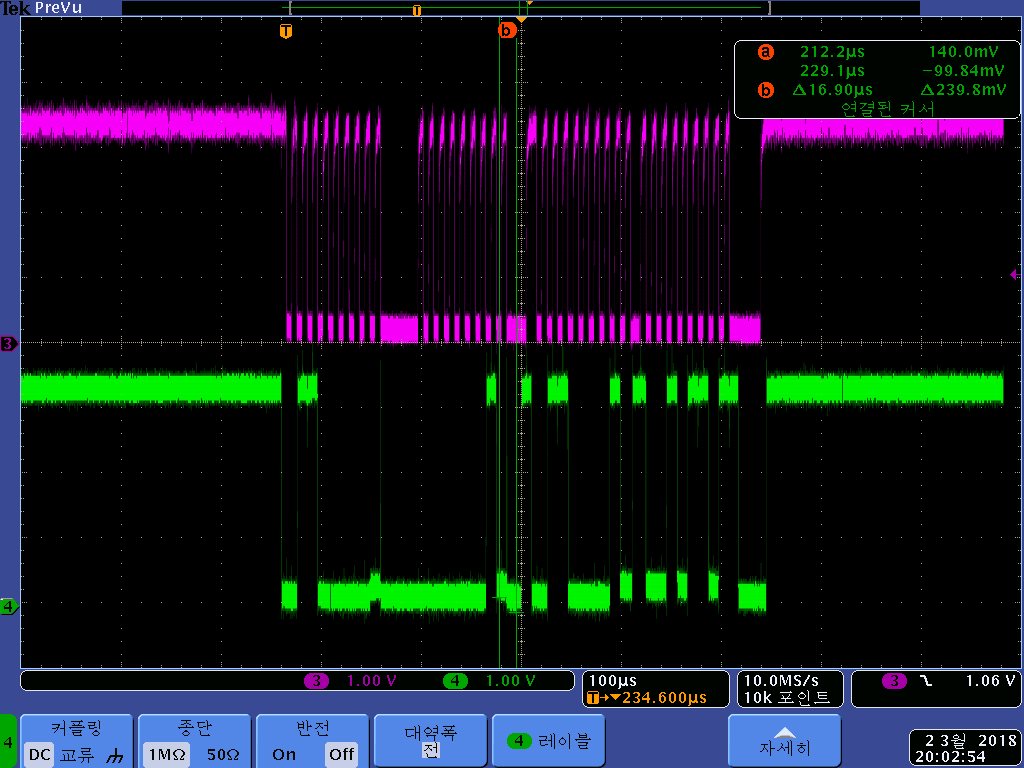Other Parts Discussed in Thread: TCA9617B, TCA9406, TCA9800
Tool/software: TI C/C++ Compiler
I developed with CC1310 as an I2C Slave.
This successfully communicates with CC1310 Master, Artik Master, and Renesas Master.
However, the target board(customer's board)does not normally communicate.
Symptoms are as follows: High level changes to Low level.
For example, when sending 0xC8, it receives 0x88, 0x80, etc. (confirmed by Slave).
Do you know any of these issues?







